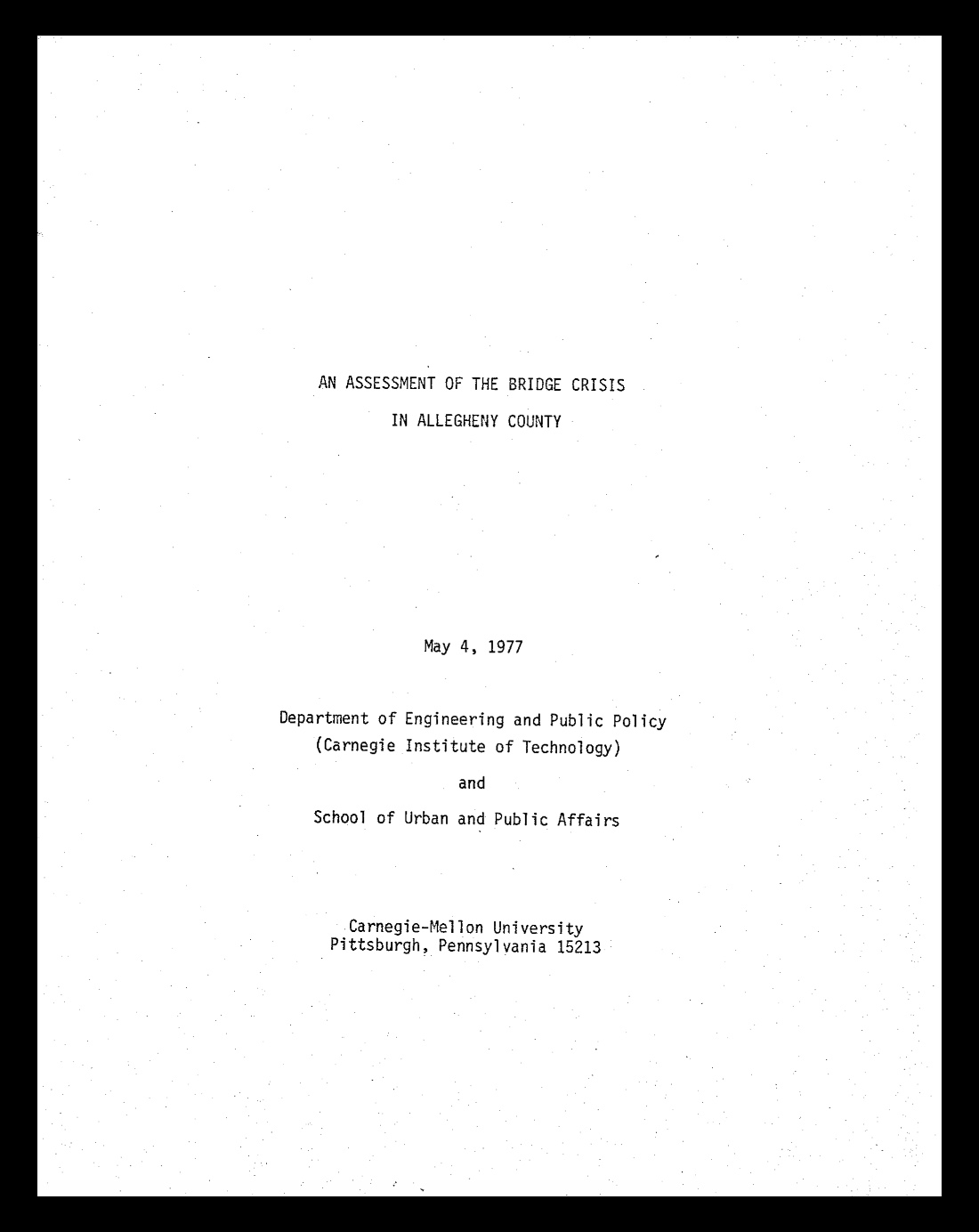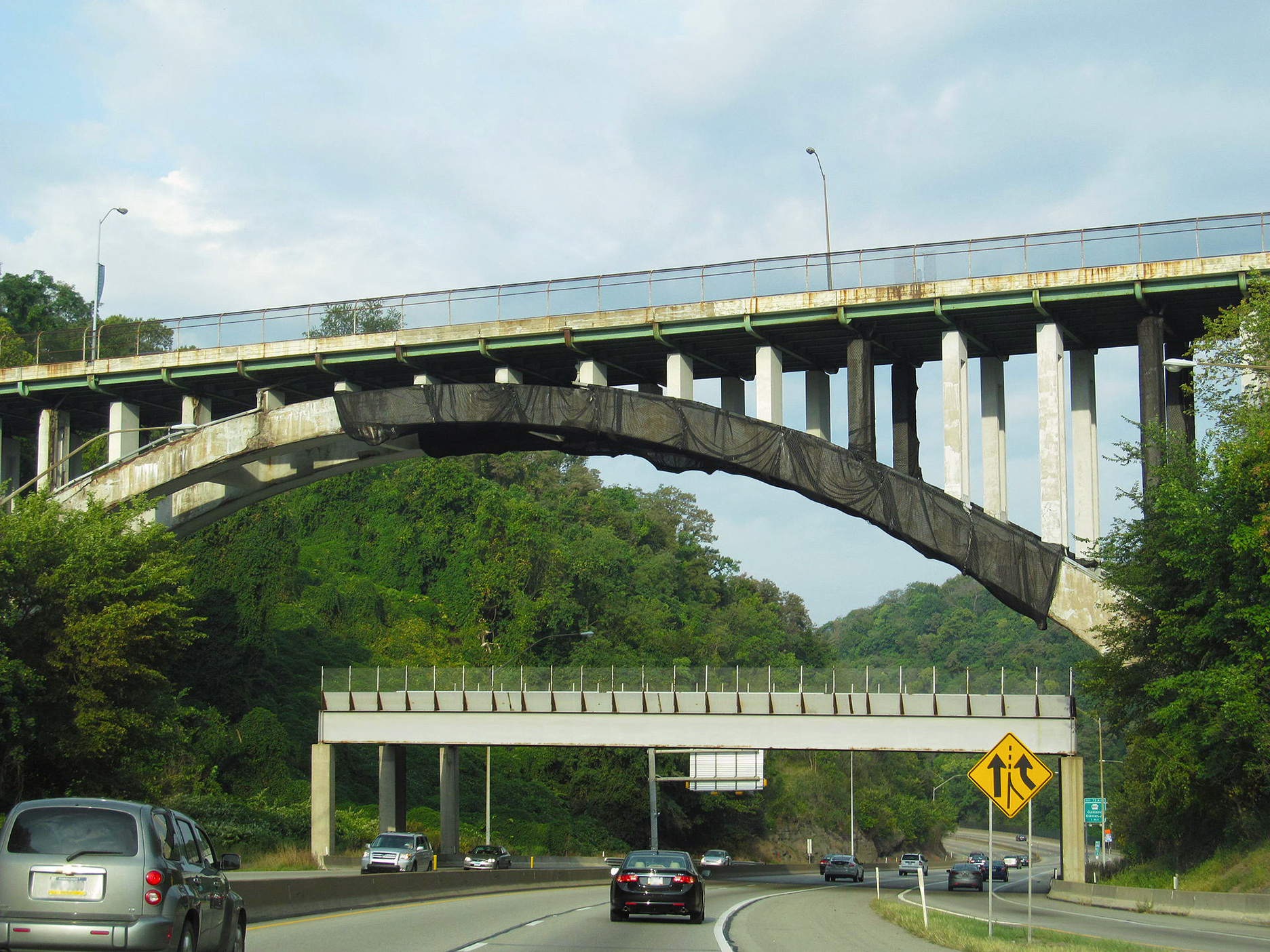Infrastructure, Part 1
For the next two months we will highlight projects that focus on one of the most fundamental parts of society – infrastructure. Past EPP projects took a closer look at our infrastructure to better be able to understand how to make our roads, bridges, and communities safer and more efficient.
Our focus this month (and next) is on infrastructure. The first project in Spring 1972 was “A Study of Solid Waste Management systems in Allegheny County” which analyzed location problems for transfer stations and landfill disposal in the area, which was quickly followed by a “Study of Road Maintenance in the Pittsburgh Area.” Cited by the Governor, this report investigated technology capabilities and benefits of improved road maintenance. Spring 1973 brought “An Analysis of Urban Watershed Waste-Water Control in Allegheny County” as well as “Noise Abatement in Allegheny County” both of which initiated the county programs in these areas.

Spring 1977’s project was “An Assessment of the Bridge Crisis in Allegheny County,” which took a deeper dive into the social implications of bridge closings, including the increased travel time and inconvenience of bridge closings. Things haven’t improved all that much, although there is hope.
Pittsburgh's Beechwood Boulevard Bridge in Greenfield was built in 2017 to replace the Old Greenfield Bridge that had become a symbol of the “nation’s failing infrastructure.” This bridge was featured on Last Week Tonight with John Oliver and 60 Minutes as a representation of the US’ dangerous aging-bridge issue. “They built a bridge under the bridge,” Oliver said during the March 2015 episode of the HBO comedy show in response to the city's temporary solution to build a platform that catches falling pieces of the decaying bridge above. “That is a college sophomore approach to structural engineering.”

The old Greenfield Bridge with the platform underneath it
Not all projects have been focused on our lack of addressing problems, though. Recent projects look ahead to the potential that infrastructure improvements can address. “Pittsburgh Bicycling: An Analysis of City Impacts, Stakeholders, Project Prioritization and Infrastructure Options” in Fall 2016 helped local Pittsburgh agencies considered how to improve biking safety and promote bike usage. This year, the City of Pittsburgh's Department of Mobility and Infrastructure released a comprehensive draft of Pittsburgh’s Bike(+) Master Plan. If implemented, this plan would add an additional 156 miles of safe bicycle facilities, expanding the total network from 30 miles of on-street facilities and 44 miles of trail to 150 miles on-street and 76 miles of trails for a total of over 226 miles of travel lanes for bicycles and other low-speed travel modes. If only we could get rid of those hills…